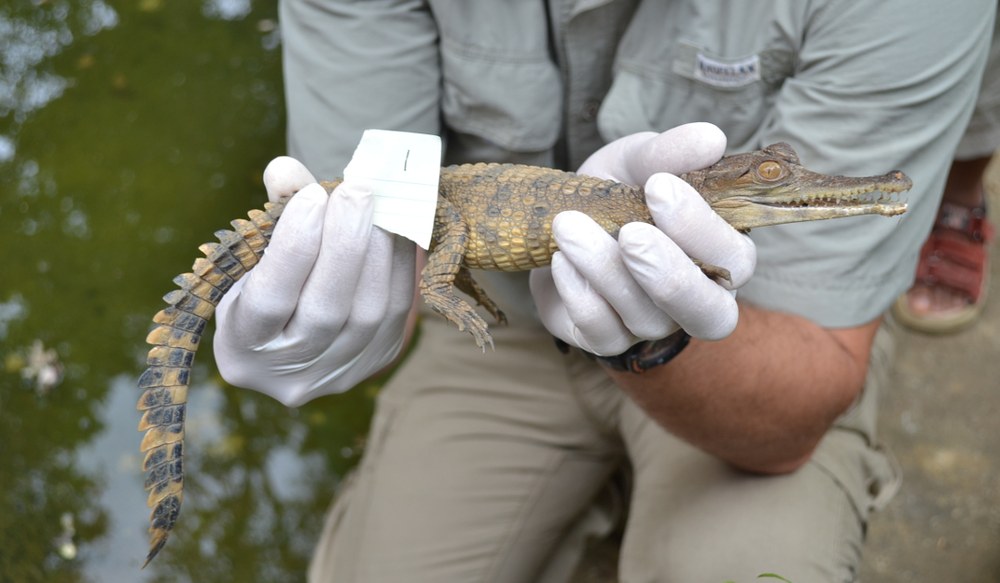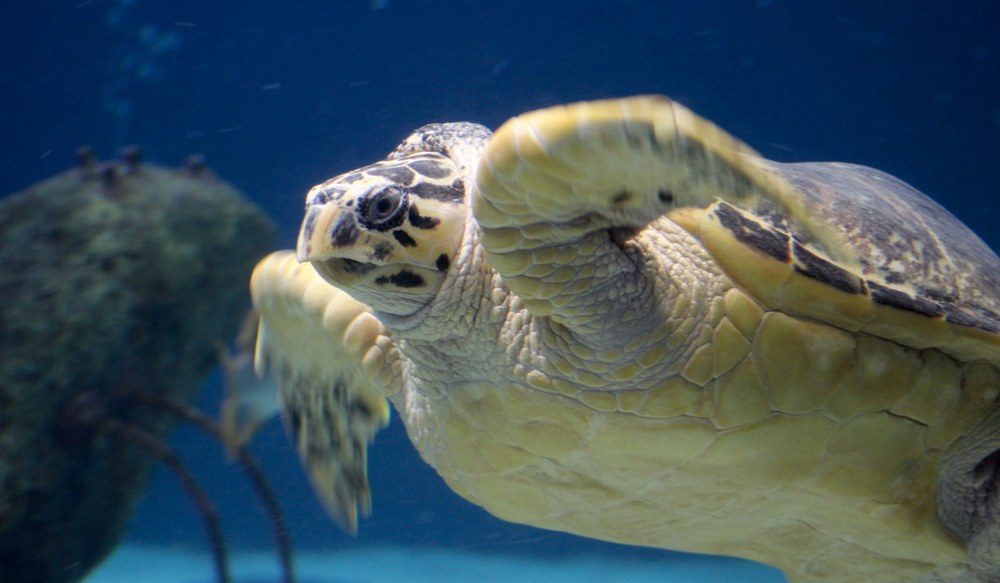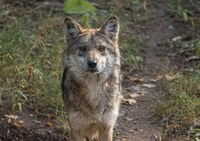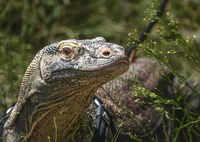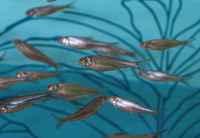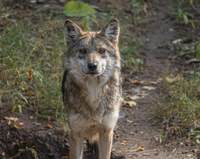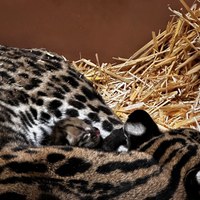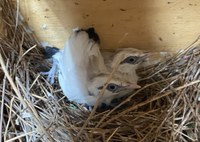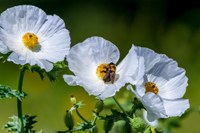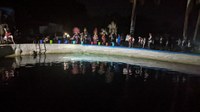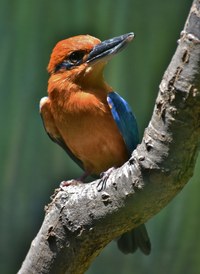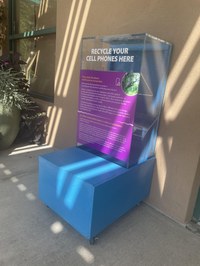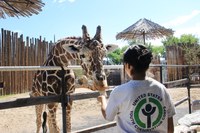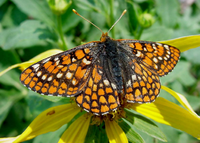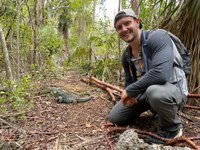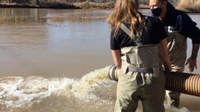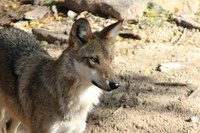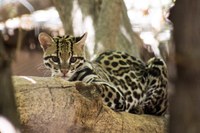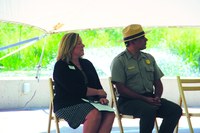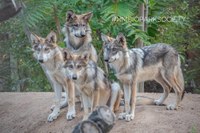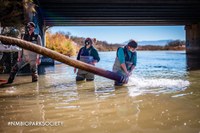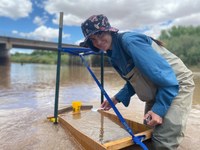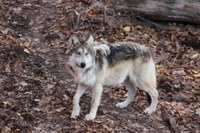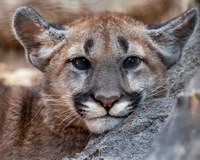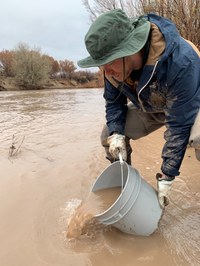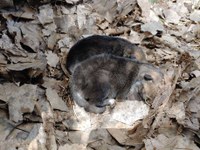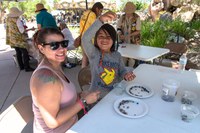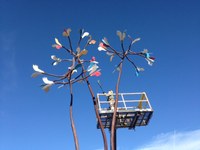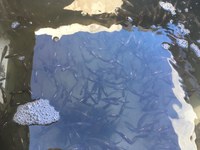Conservation
Information about conservation efforts at the ABQ BioPark.
New Conservation Facility Expands Opportunities for Mexican Gray Wolves Recovery
ABQ BioPark expands wolf care capacity in partnership with USFWS.
ABQ BioPark Contributes to Komodo Dragon Conservation Work in Indonesia
Komodo dragons, renowned as Indonesian icons and the world’s largest lizards, were listed as endangered in 2021.
From Drought to Downpour: ABQ BioPark Supports Silvery Minnow Recovery in Face of Climate Extremes
These efforts are part of a broader, long-term recovery program for some of the Southwest’s most vulnerable aquatic life.
Mexican Gray Wolves Return to the Wild with Help from ABQ BioPark
BioPark’s commitment to conservation extends far beyond its gates.
A Spot of Hope: ABQ BioPark Welcomes Ocelot Kitten
Birth brings welcome news for safeguarding the endangered species
ABQ BioPark Welcomes Critically Endangered Bali Myna Chicks
The chicks are the first of the species hatched at the ABQ BioPark in 40 years.
ABQ BioPark Partners with the Center for Plant Conservation to Save Endangered Species
Botanic Garden committed to expanding plant conservation efforts
ABQ BioPark Aquarist Visits Mexico to Support in Fish Release
Golden skiffia were listed as extinct in the wild in 1996, and local conservationists released 1,200 this November.
New Electronics Recycling Stations at the Zoo, Garden and Aquarium
Join the ABQ BioPark in making a difference for gorillas, ocean animals and other wildlife by recycling your cell phone and other electronic gadgets
ABQ BioPark Expands Partnership with Valle de Oro National Wildlife Refuge
Browse donation program will benefit Zoo’s giraffes, promote native habitat at Valle de Oro.
ABQ BioPark Partnering With U.S. Fish and Wildlife Service to Save Imperiled New Mexico Butterfly
Staff are breeding and rearing the Sacramento Mountains checkerspot butterfly in hopes of boosting wild population, genetic diversity.
ABQ BioPark Zookeeper Visits Grand Cayman Island to Help With Iguana Conservation
Reptile keeper Phil Mayhew says his experience will help inform the Zoo’s Grand Cayman blue iguana care program.
ABQ BioPark Releases Silvery Minnows into Rio Grande
ABQ BioPark Releases Silvery Minnows into Rio Grande
Mexican Gray Wolf Program Continues With New Wolves Coming to the BioPark Soon
The ABQ BioPark continues to contribute to the Mexican Gray Wolf Species Survival Plan by serving as a breeding and holding facility.
ABQ BioPark Ocelot Lucy Receives Sperm From Wild Male
The artificial insemination could help bolster conservation efforts for wild ocelots and increase genetic diversity in zoo-based populations.
ABQ BioPark Announces New Wildlife Partnership with Valles Caldera National Preserve
5-year agreement to protect local endangered wildlife.
ABQ BioPark plays a leading role in freshwater fish conservation in the Caribbean and around the globe
ABQ BioPark plays a leading role in freshwater fish conservation in the Caribbean and around the globe
In Boost to Conservation of Endangered Species, ABQ BioPark's Wolf Pack to Be Released Into the Wild
Kawi, Ryder & 7 pups temporarily in a facility in Mexico, will be introduced to the wild after learning to hunt, survive on their own.
ABQ BioPark Celebrates 20 Years of Rio Grande Silvery Minnow Conservation
Staff from the BioPark’s Aquatic Conservation Facility released 34,000 minnows into the Rio Grande in Albuquerque on November 16, another release planned later this month
ABQ BioPark Aquatic Conservation Facility Collects more than 100,000 Silvery Minnow Eggs this Spring
Eggs collected to help with breeding efforts for the endangered fish.
ABQ BioPark Continues Legacy to Conserve New Mexico Native Mexican Gray Wolves
2019 a Busy Year With Birth of Cubs, Wild Wolf Rehabilitation and Temporary Behind- the-Scenes Residents.
ABQ BioPark Releases 15,000 Rio Grande Silvery Minnows into the River
BioPark's Aquatic Conservation Facility continues 19-year partnership to help conserve the endangered fish.
Wolf Pups Born at the Zoo as Part of Conservation Plan
This is the first lobo birth in Albuquerque in nearly 15 years.
Solar Panels Being Installed at the BioPark
Carport-style solar panels will offer shaded spaces in Zoo and Botanic Garden parking lots in addition to generating renewable energy.
The ABQ BioPark Goes Wild
The majority of the BioPark’s focus is on the animals in the facility's care, but veterinary staff also helps wild animals in need.
ABQ BioPark releases 48,000 Rio Grande silvery minnows this fall
Conservation program at the ABQ BioPark is in its 18th year.

